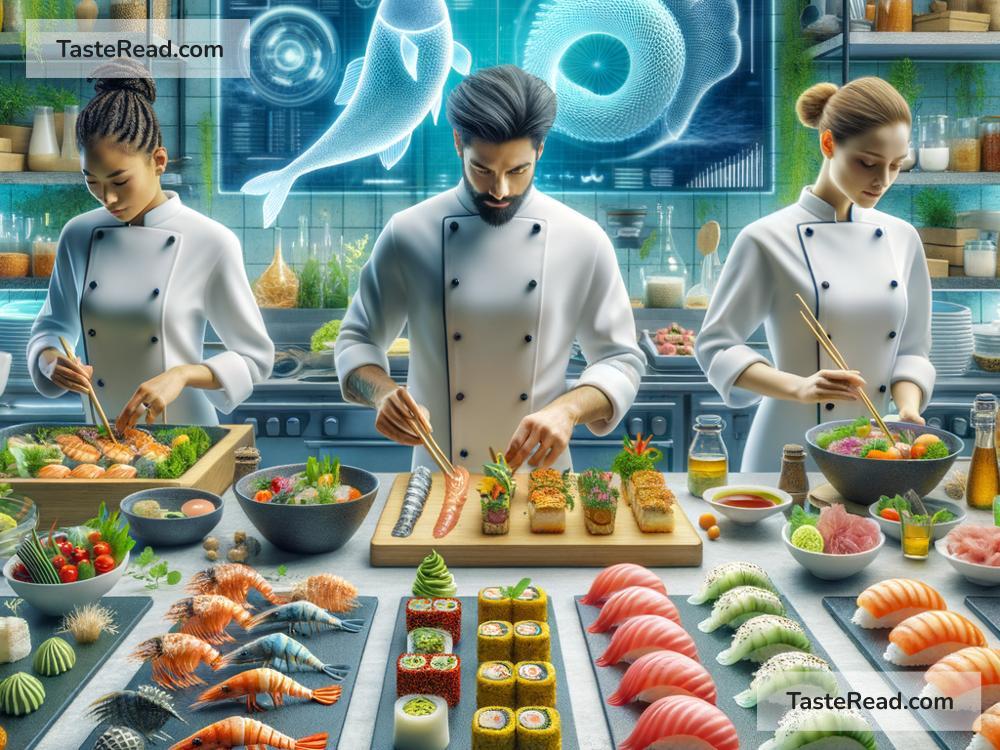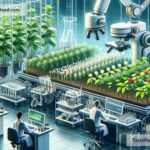The Future of Plant-Based Seafood: A Healthy and Sustainable Choice
Seafood has long been an important part of human diets. From crispy fried shrimp to tasty fish tacos, seafood offers nutrition and flavor that people love. But as the world faces environmental challenges and rising demand for food, many are looking for sustainable alternatives. One exciting solution is plant-based seafood—a new food innovation that mimics the taste, texture, and nutrition of seafood without relying on fish or other sea creatures. Let’s dive into the future of plant-based seafood and explore why it could be a game-changer for our planet and plates.
What Is Plant-Based Seafood?
Plant-based seafood is made from ingredients like vegetables, legumes (such as beans or lentils), seaweed, or algae. These foods are processed to resemble the flavor and texture of fish, shrimp, crab, or other types of seafood. Some products are made using advanced food technologies involving plant proteins, like pea protein or soy protein, combined with spices and natural flavorings to create the perfect seafood taste.
Popular examples include plant-based fish fillets, imitation tuna, and even plant-based sushi. In grocery stores and restaurants, these options are becoming more common as more companies invest in creating high-quality alternatives.
Why Do We Need Plant-Based Seafood?
There are several reasons why plant-based seafood is gaining attention:
-
Protecting Our Oceans: Overfishing is a major problem around the world. Many fish populations are shrinking, and ecosystems are being damaged because we’re taking too much seafood from the ocean. By switching to plant-based options, we can help reduce pressure on marine life and allow fish populations to recover.
-
Reducing Pollution: Traditional seafood farming, such as fish farms, can pollute water with chemicals and waste. On the other hand, plant-based seafood leaves a smaller environmental footprint and doesn’t contribute to water pollution.
-
Addressing Climate Change: Fishing boats burn fuel and release greenhouse gases, contributing to climate change. Plant-based seafood can help lower carbon emissions by reducing the need for fishing and transporting seafood across the globe.
-
Meeting Demand for Food: The world’s population is growing, and more people need access to food. Plant-based seafood offers a way to provide nutritious meals for everyone without relying on limited natural resources like wild fish populations.
How Is Technology Changing the Game?
To create plant-based seafood that tastes just as good as the real thing, scientists and food developers are using creative technologies. One major focus is mimicking the texture of seafood, which can be soft, flaky, or chewy. For example, companies use plant proteins to replicate the unique feel of fish or shrimp.
Another area of innovation is flavor creation. Seafood has a distinct salty and “ocean-like” taste that comes from minerals and compounds found in fish and the sea. To achieve this flavor, plant-based seafood uses ingredients like seaweed, kelp, and algae. These ocean plants are not only tasty but also rich in nutrients, like omega-3 fatty acids, which are important for heart and brain health.
Finally, some companies are working on “precision fermentation,” an exciting technology where microbes (tiny bacteria or yeast) produce specific proteins found in seafood. This process could make plant-based options even more realistic in the future.
What Are the Benefits for Consumers?
For people who love seafood but worry about sustainability, plant-based seafood is a great choice. Here are some benefits:
-
Healthier Diets: Plant-based seafood often contains fewer calories, less saturated fat, and no cholesterol compared to traditional seafood. It’s also free of harmful contaminants like mercury and microplastics that fish can absorb from polluted ocean waters.
-
Affordable Options: As the technology improves, plant-based seafood is becoming more affordable. In the future, it might cost less than wild-caught or farmed seafood.
-
Accessibility: People who live far from the ocean can access plant-based seafood products without the need for long-distance shipping.
-
Helping Vegetarians and Vegans: For those who avoid animal products, plant-based seafood offers new ways to enjoy flavors similar to fish and shrimp.
Where Is the Industry Headed?
The plant-based seafood industry is still young but growing fast. Many food companies are working on research and launching new products to meet consumer interest. Celebrities and environmental activists are also raising awareness about the need for sustainable food choices, which has helped boost demand.
Experts predict that the plant-based seafood market will expand in the next decade. Grocery stores will likely carry more options, and restaurants may feature plant-based seafood on their menus. As people become more aware of the environmental and health benefits, plant-based seafood could become a normal part of everyday meals.
Challenges Ahead
While there’s a lot of excitement about plant-based seafood, there are challenges to overcome. Some people are hesitant to try new foods because they’re used to traditional seafood. Companies need to work hard to improve taste, appearance, and affordability.
Additionally, not all plant-based seafood products are perfect for the environment. Some rely on highly processed ingredients, which may still have a carbon footprint. To truly make plant-based seafood sustainable, the focus needs to stay on using natural and eco-friendly ingredients.
Conclusion
The future of plant-based seafood holds great promise. As technology advances and more people embrace sustainable food choices, these products could transform how we eat and protect the planet. Whether you’re a seafood lover looking for healthier options or someone who wants to help the environment, plant-based seafood offers a delicious and responsible way forward.
The sea is a vital part of Earth’s ecosystem, and choosing plant-based seafood is one step toward ensuring that its beauty and resources are preserved for future generations.


